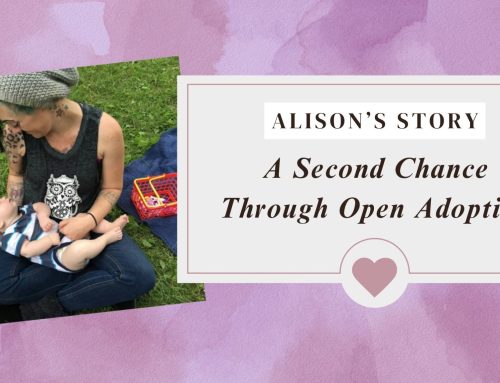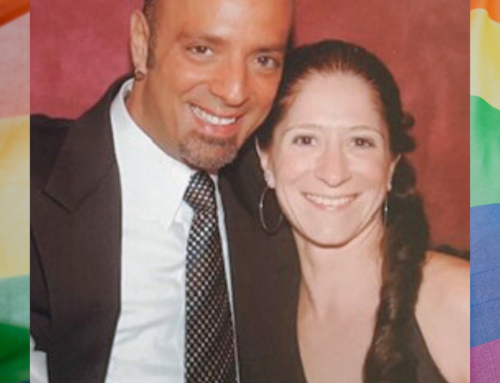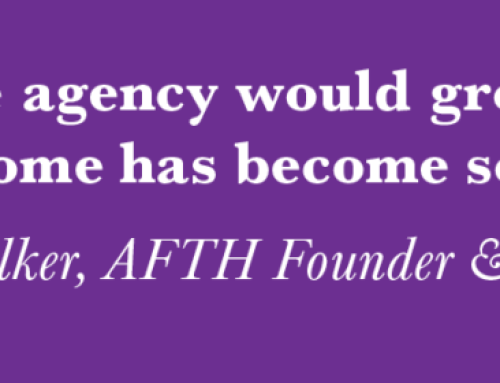Time for another “A Heart-to-Heart with Adoptions From The Heart” podcast recap! This week’s episode was led by Jenna Smith, AFTH’s Domestic Program Coordinator. This week’s guests were Dr. Chelsea Toth, Director of Field Education & Assistant Professor of Social Work at Cedar Crest College, and social work interns Nikki, Chevonne, and Jacki, from Adoptions From The Heart. The episode focused on social work and how the field has evolved due to Covid.
Uncertainty During Covid
Like most people, social workers were faced with uncertainty when the Covid restriction took effect. The interns weren’t sure what their school year and their internships were going to look like since face-to-face meetings were not allowed. They teach that all social work is done in person in school, so adjusting to remote learning and interning took time.
Placing interns became a lot trickier. Some internships fell through as restrictions got tighter and policies became stricter. Many places could not host students. It became tricky for Dr. Toth to find last-minute placements for all her students. She was relieved that her students were given fewer hour requirements for graduation. Holding students to the same standards of a pre-covid world just wasn’t possible for most students.
Interning During a Pandemic
Even within AFTH, the interns have different experiences due to restrictions. Jacki is in a more closed-off office. She can safely work in the same building as her colleagues, whereas the others are entirely remote. When working in the office, Jacki has to be conscientious of what she does for the safety of herself and others. The other interns do not have to worry about the safety aspect, but they do not benefit from instantaneous communication like Jacki.
On top of working alongside colleagues, Jacki also meets her clients in-person, whether it be in the office or a home visit. For the remote interns, they communicate with co-workers and clients via zoom or email. Despite the distance, the virtual interns find they have access to more people within AFTH since staff meetings, and support groups are all virtual right now. This experience is something that happened less frequently pre-covid times.
Most of the interns said that they are lucky to have their internships since many of their classmates have taken alternative assignments or work with avatars rather than real clients. The alternative projects are for those who need to learn but don’t have the same opportunities due to Covid, whether it is health risks or the lack of agencies able to supervise students.
Positives and Negatives of Remote Social Work
Dr. Toth found that her students and colleagues all needed to transition to a virtual workspace. Everything needed to be shifted from in-person to remote, which can be tricky in a field that, previously, has been so in-person-oriented. Many people were concerned that learning remotely might not prepare students. Many students and professionals alike felt it was harder to build rapport with new clients than when meeting in-person.
On the other hand, many people have found that working remotely has forced people to consider a new channel in tele-social work, giving people more access to transportation limitations. Support groups are seeing higher numbers of attendees since it is easier to attend. People need a device to sign on and do not need to worry about physically getting to the meetings anymore.
Changes within Social Work as a Field
Dr. Toth had a case-manager that worked in a local hospital as a guest speaker in her classes. She found out that in-patient work was done over the phone, despite both the patients and the hospital workers being in the same building. Covid made the face-to-face interactions too risky, so they were forced to communicate over the phone. The interns found similar practices and policies in other hospitals as well.
Clients have felt the lockdown restrictions immensely, especially those that are recovering addicts and alcoholics. The drastic change in what’s possible and available can be very stressful. Many of these people relied on face-to-face meetings and felt anxiety when they were shut down, which can be dangerous to their recovery journeys. Social workers have a more challenging time identifying certain behaviors and markers, especially in child welfare, now that they do not see each other in person.
Work-life Balance During Covid
Burn-out is a real issue in the social work field. Jenna talks about how she would get monthly massages as a form of self-care, which became impossible in lockdown. All of the speakers found it hard to keep their work and home life separate because they all have work with them everywhere they go. When working in an office, it’s easier to walk away and physically leave work at the office. When you work at home, it’s vital to set up the boundaries physically, like leaving work materials in a location away from a recreational space. For example, one of the interns said she wouldn’t work on her laptop while she’s on the sofa in the living room since that is where she spends time with family.
Dr. Toth teaches her students a Self-Care Safety Plan. It involves making a list of three to five people who you can call at any time, three to five coping activities, two role models (one you know and one celebrity), and then your mantra. Having these written down and in a place you can see them; reminds you that you have options and can take a step back.
Advice
Being motivated and pushing through challenges is essential for social workers. Another important thing to remember is that what they teach you in school is relevant. Even though it might not seem like it right away, there will come the point when it will all make sense. These skills will guide you through your internships and careers. Social work is a vast field, and there are so many different directions you can go. Opportunities are out there. Find what fits best for you.
To listen to the podcast, go here.




